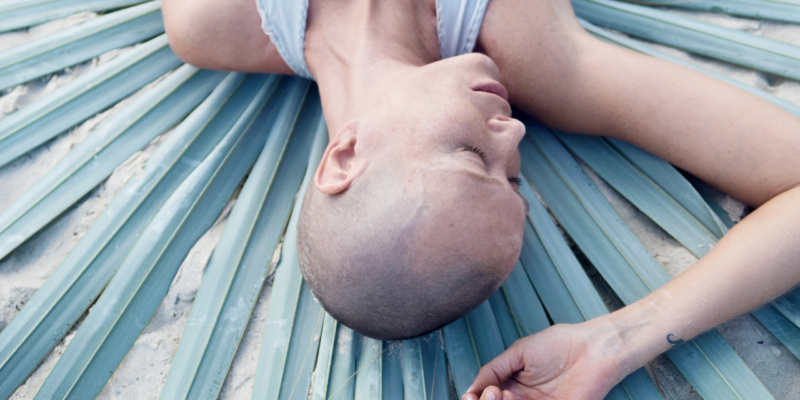
For women going through cancer treatment, the hair-loss process is a topic that gets a lot of attention. What is not talked about as much, however, is what happens when the hair starts to return. In my experience as a recent ovarian cancer survivor, there’s still a lot that can come up — both physically and emotionally — during the hair-regrowth phase.
I had long, dark curls for most of my life. Now that I’m about a year post-treatment, my hair is short and cut in a style I never would’ve chosen for myself, but really like now that I have it. How I feel about my hair can change from day to day, though: Sometimes I love it and want to keep it short, the other days, I miss my long curls. On Monday, my short hair is an empowering ode to what I’ve been through, but by Tuesday, I wonder if I’m too attached to my cancer survivor identity.
Kristie Redfield, LCSW-R, a clinical social worker at Memorial Sloan Kettering Cancer Center’s cancer survivorship program, Resources for Life After Cancer, sees the hair regrowth process as emblematic of the survivorship experience overall. Once your hair starts to grow back, people often assume you’re all better and the cancer is behind you.
“It’s a metaphor for what a lot of patients describe as the difference between their internal experience and the expectations of the world around them,” Redfield says. “Everyone else expects you to go back to ‘normal’ [because] the cancer’s over and you look great. But often patients don’t feel that way inside. They’re still recovering, and the transition to survivorship can actually be profoundly painful.”
The expectation might be that once you’re done with active treatment (and you have hair on your head again) you can just snap back to normal, but the reality is that emotionally recovering from what you’ve been through as a cancer patient — and growing back your hair — takes time.
Hair falls out during treatment because many types of chemotherapies target rapidly-dividing cells, like cancer cells, explains Jolyn Taylor, assistant professor of gynecologic oncology at the University of Texas MD Anderson Cancer Center. Hair follicles are also rapidly dividing cells and therefore can be affected by chemotherapy agents as well, she says, and the hair on the scalp is particularly vulnerable to the effects of many types of chemotherapy. Taylor notes that people in treatment will start to see hair loss quite quickly, usually within the first several weeks of starting chemotherapy — but the time it takes to grow back can vary greatly.